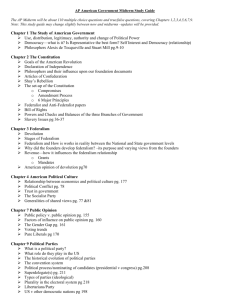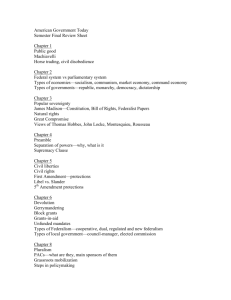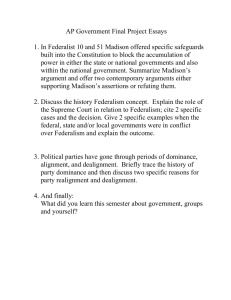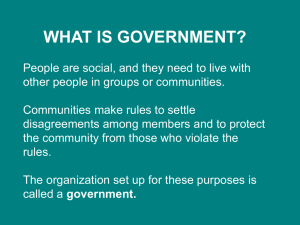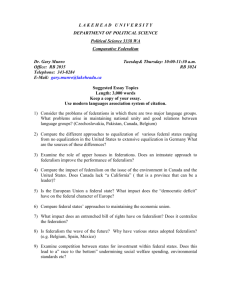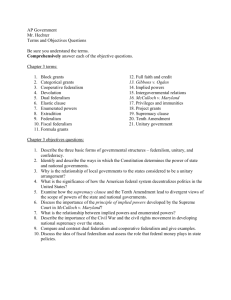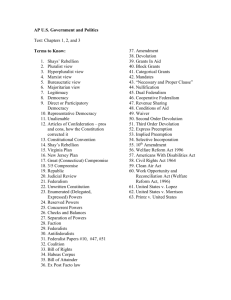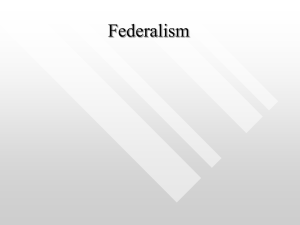Chapter 3: Federalism
advertisement
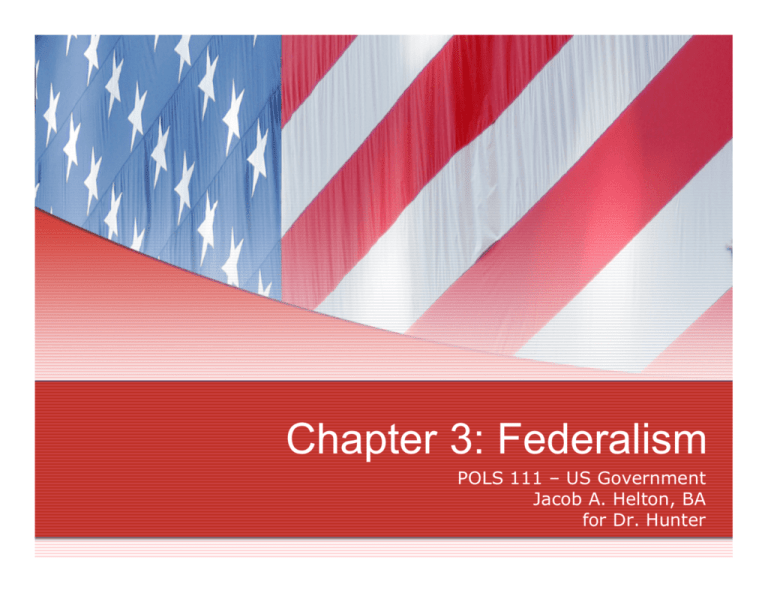
Chapter 3: Federalism POLS 111 – US Government Jacob A. Helton, BA for Dr. Hunter But first… • • • • • • Department Website: Grad Assistants ICQ: 6645050 AIM: flameflash82 Yahoo: flameflash82 MSN: flameflash@mac.com Skype: flameflash (search for flameflash@mac.com) • GoogleTalk: flameflash@gmail.com • E-mail: jacob.helton@mnsu.edu • http://sbs.mnsu.edu/psle/ga/helton.html Federalist LI (51) • Paragraph 6 • “In republican government, the legislative authority necessarily predominates” • Roman Numerals •I = 1 •V = 5 • L = 50 • C = 100 • D = 500 • M = 1000 3=III 40=XL 47=XLVII 900=CM Basic Definitions • Federal System of Government• Political authority is divided between selfgoverning parts and the central whole. • Federalism• 267 varied definitions! • Constitutional arrangement whereby power is distributed between a central government and subdivisional governments. The national and subdivisional governments both exercise direct authority over individuals. Types of Federalism Dual Federalism Layered Cake Federalism Types of Federalism Cooperative Federalism Types of Federalism Marble Cake Federalism Types of Federalism Competitive Federalism Types of Federalism Permissive Federalism Types of Federalism “Our Federalism” States enjoy 10th amendment Powers. Why Federalism… • Corrects for the negatives of unitary and confederal systems • Unitary becomes too large to effectively manage • Confederal lacks any central authority for disputes • Allows cultural/ethical differences by region • ie. States choose decisions on gay marriage and abortion • Encourages experimentation • Programs tested in smaller environments • Can be replicated if successful, little harm if not • Government closer to the people Powers Granted by Constitution • Article I, Section 8 • Article I, Section 9 • Article I, Section 10 • Tenth Amendment Special Points • Full Faith and Credit Clause • Interstate Privileges and Immunities • Extradition • Interstate Compacts • National Supremacy and Preemption • McCulloch v. Maryland (1819) • Implied National Powers • NIMBYism Loopholes • Grants • Categorical-Formula Grants • Project Grants • Block Grants • Mandates • Direct Orders • Cross-Cutting Requirements • Crossover Sanctions • Total and Partial Preemption Questions?

